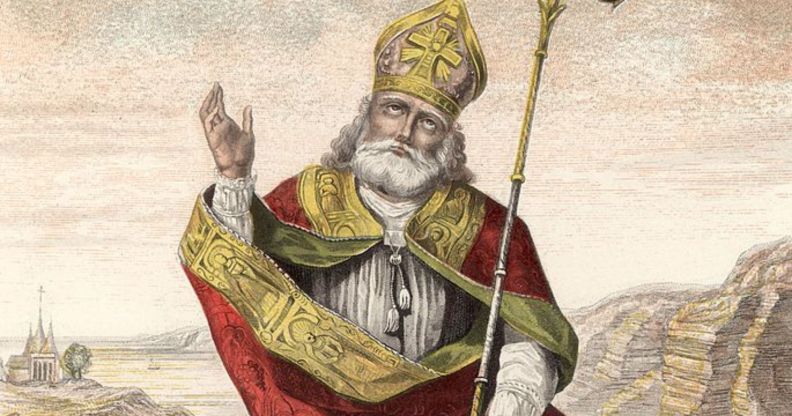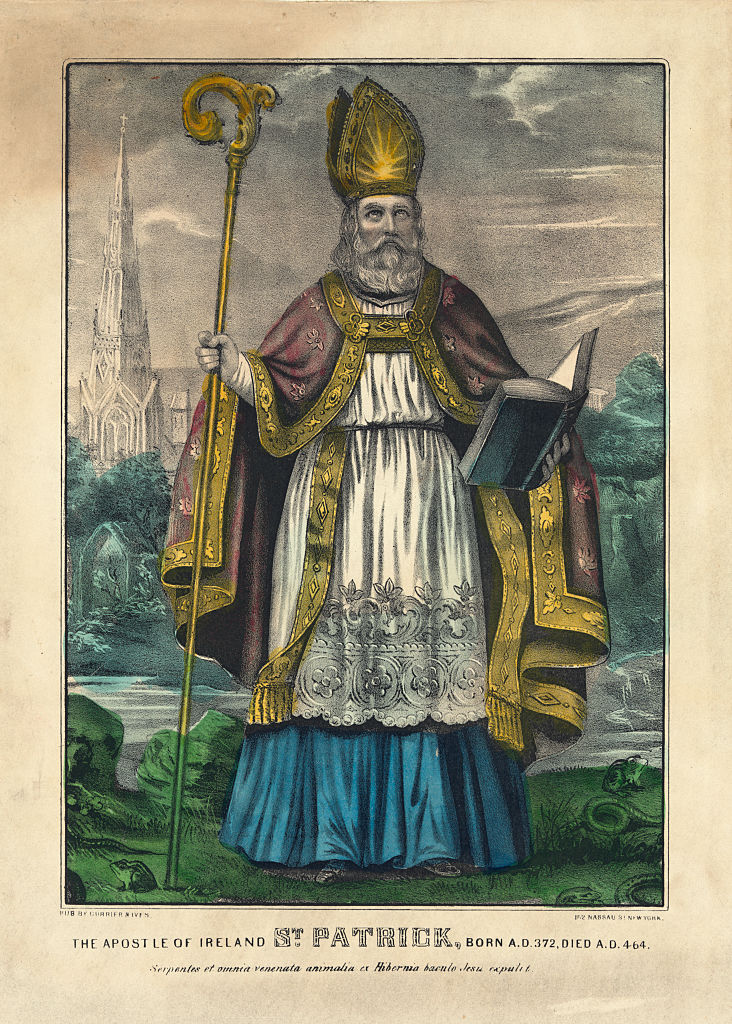Why St Patrick refused to suck male sailors’ nipples

St Patrick refused to suck the nipples of sailors – but it’s not as it appears. (Getty)
St Patrick was many things – a Christian missionary, an “Apostle of Ireland” – but one thing he most definitely was not was a sucker of nipples, according to his own writings.
Because St Patrick lived so long ago, there’s been significant speculation about who he really was, what he stood for, and what his legacy means today.
Perhaps that’s why one passage in his writings where he writes about his refusal to suck the breasts of sailors has elicited so much curiosity.
“That day, I refused to suck their breasts, because of my reverence for God,” St Patrick wrote.
“They were pagans, and I hoped they might come to faith in Jesus Christ. This is how I got to go with them, and we set sail right away.”
Unsurprisingly, there are plenty of theories as to what St Patrick actually meant. In 2017, one reverend claimed in the Belfast News Letter that it was Patrick’s way of showing that he rejected homosexuality.

Others have argued the reference could have been rooted in reverence for the male nipple and its association with power in ancient Ireland.
Neither theory fully captures the most likely reality, according to Dr Niamh Wycherley, a professor in the Department of Early Irish at Ireland’s Maynooth University.
Instead, the passage was likely St Patrick’s way of showing Christian bishops and missionaries – his target audience – that he hadn’t “gone native” in Ireland.
“He’s explaining: ‘No I was around non-believers and non-Christians but I was converting them to Christianity, I didn’t become one of them, I didn’t partake in any non-Christian activities,’” Wycherley tells PinkNews.
“You have to understand the broader context of what the language means.
“In relation to sucking on the breasts of sailors on the ship that Patrick is on, basically what he’s saying there is that he’s not engaging with this pagan religion – that he sucks on the breast of Christianity and that means he is fully nourished by the word of God and he did not need to engage in any pagan devotion because he was already satisfied with the word of God.”

She adds: “It’s a deeply religious, deeply biblical metaphor and his audience would have understood that and he is explicitly directing it at them.”
Essentially, the passage has nothing to do with homosexuality – it was just another way for St Patrick to convey in his writings that he was committed to his Christian mission.
Fifth century context is vital when talking about St Patrick
It’s fine for people to speculate about St Patrick up to a point, Wycherley says – but problems arise when people ignore the context of the time his confessions were written in. St Patrick lived in the fifth century and was a very serious man – a far cry from the tone of modern St Patrick’s Day celebrations.
“When you don’t understand the background context in any sense, you can take it to mean something completely different,” Wycherley says.
The reality is that St Patrick would have been “deeply intentional” in his writings, and every single word was “carefully chosen to portray a particular message”.
“People like Patrick, they mean different things to different people at different times and that’s OK – it only becomes a problem when people claim things about Patrick to be true or authentic or that there is one correct way to remember someone,” Wycherley adds.

“What some people find quite funny today is the real Patrick, how he expresses himself in his writings, is the total opposite to going out and getting drunk and having the craic – he is the most serious person in Irish history,” she laughs.
“It’s kind of funny that that’s how we celebrate it today – but that’s OK as well.
“So long as you don’t make any claims that something is authentic I think celebrate in any way you want, and remember the real historical individual as well.”
How did this story make you feel?

